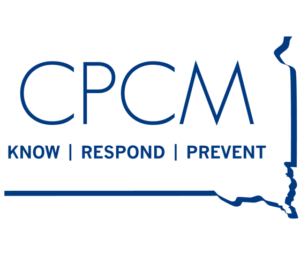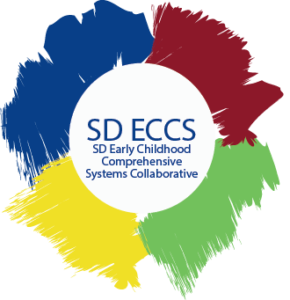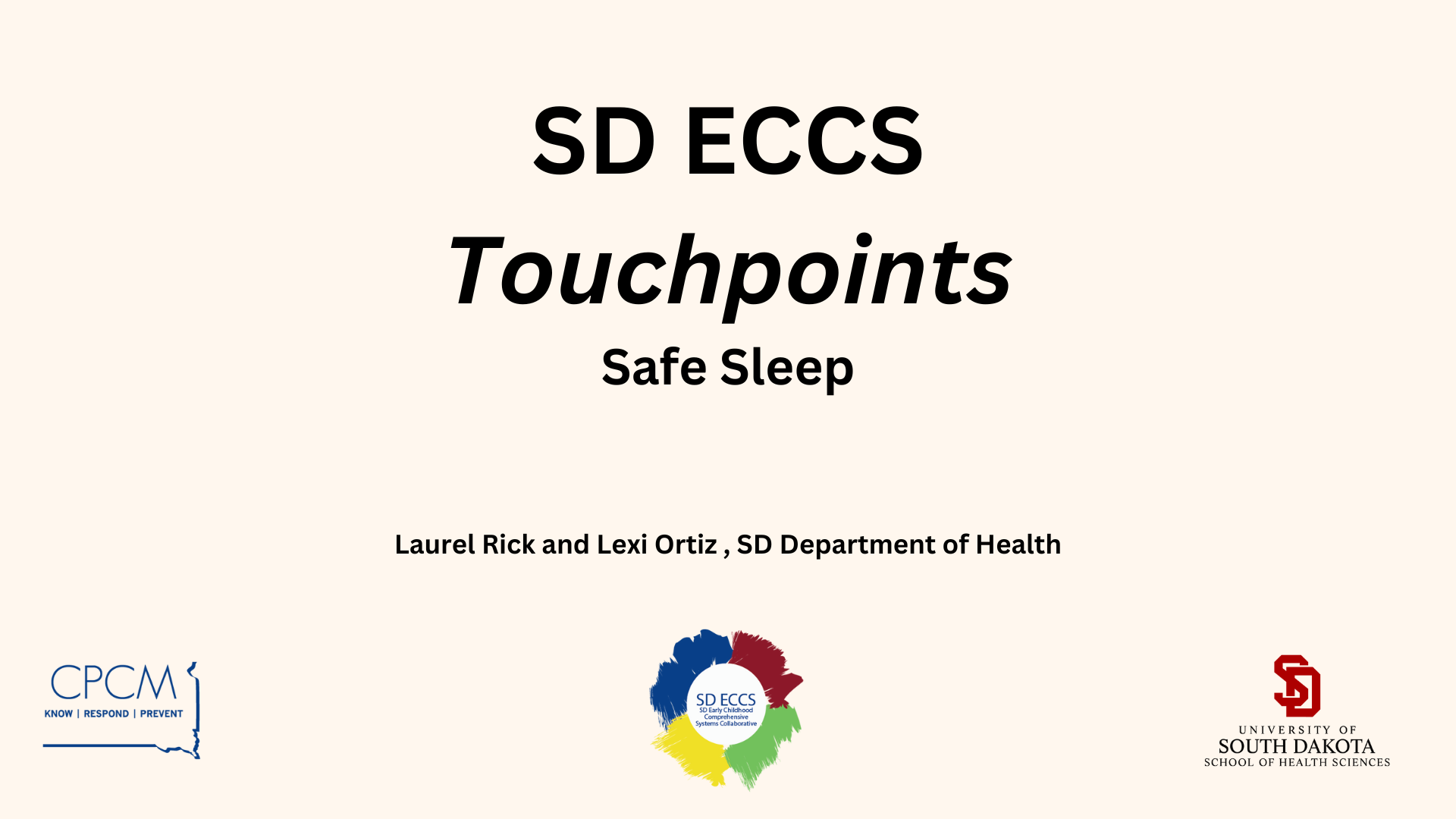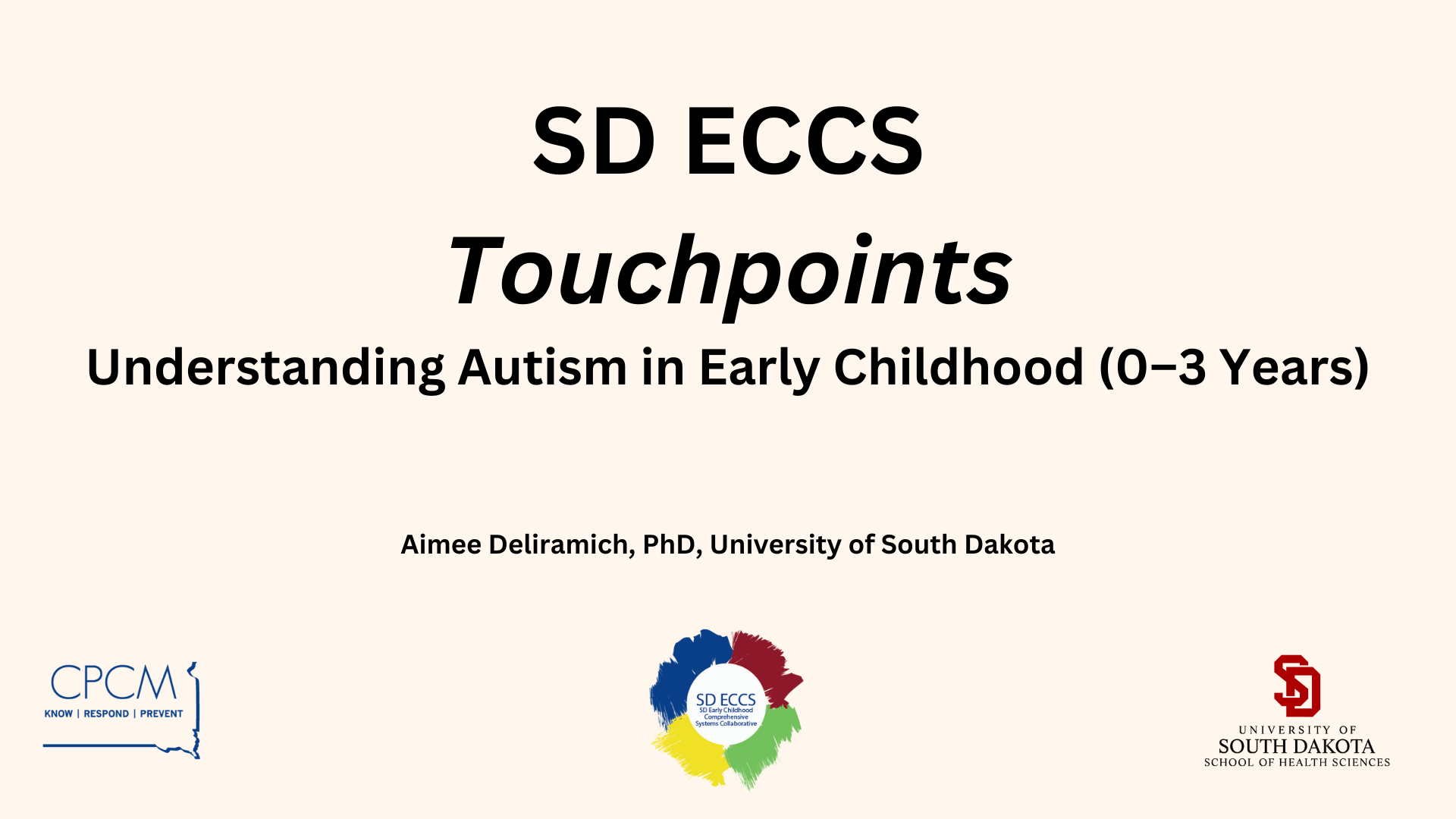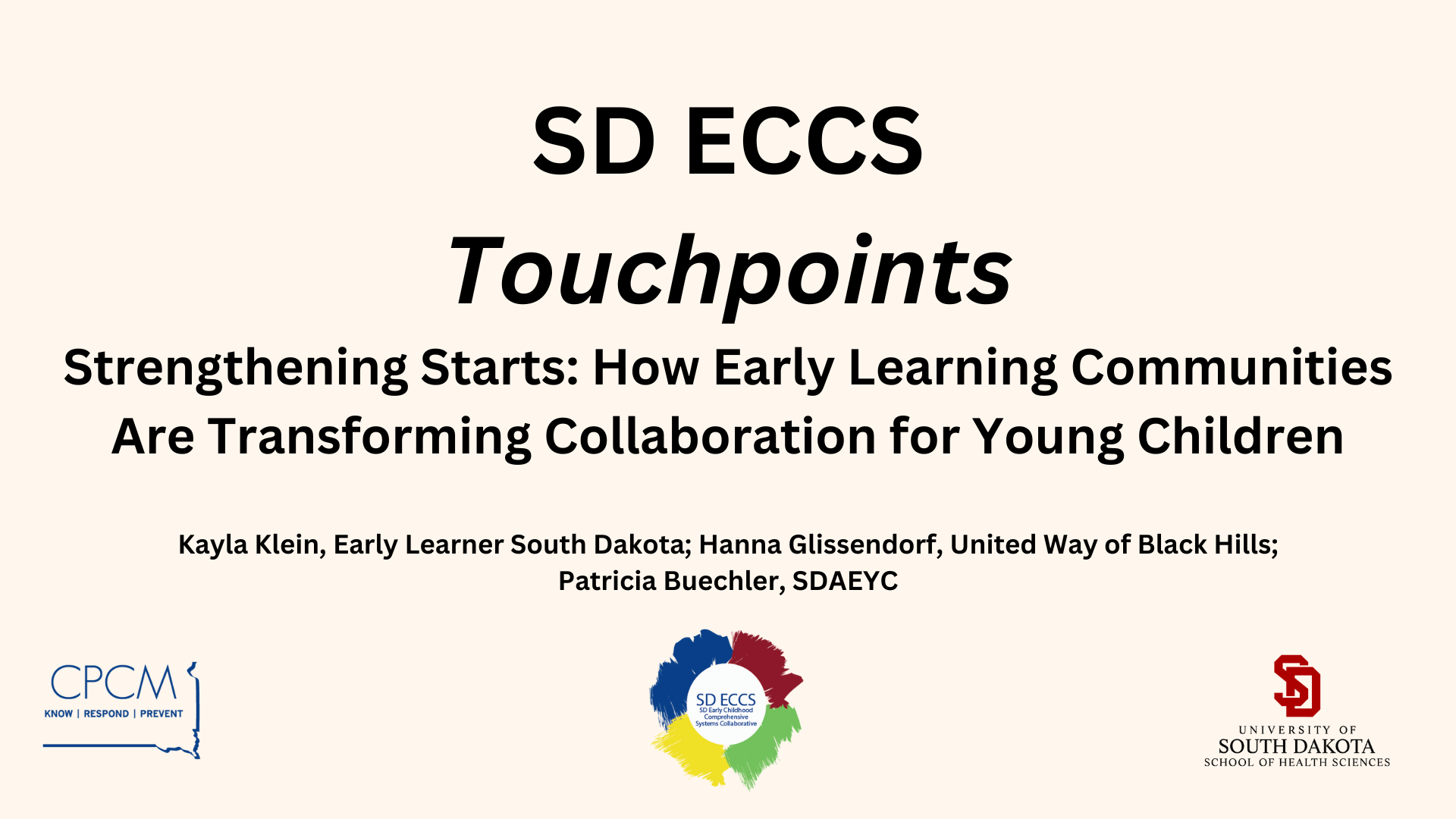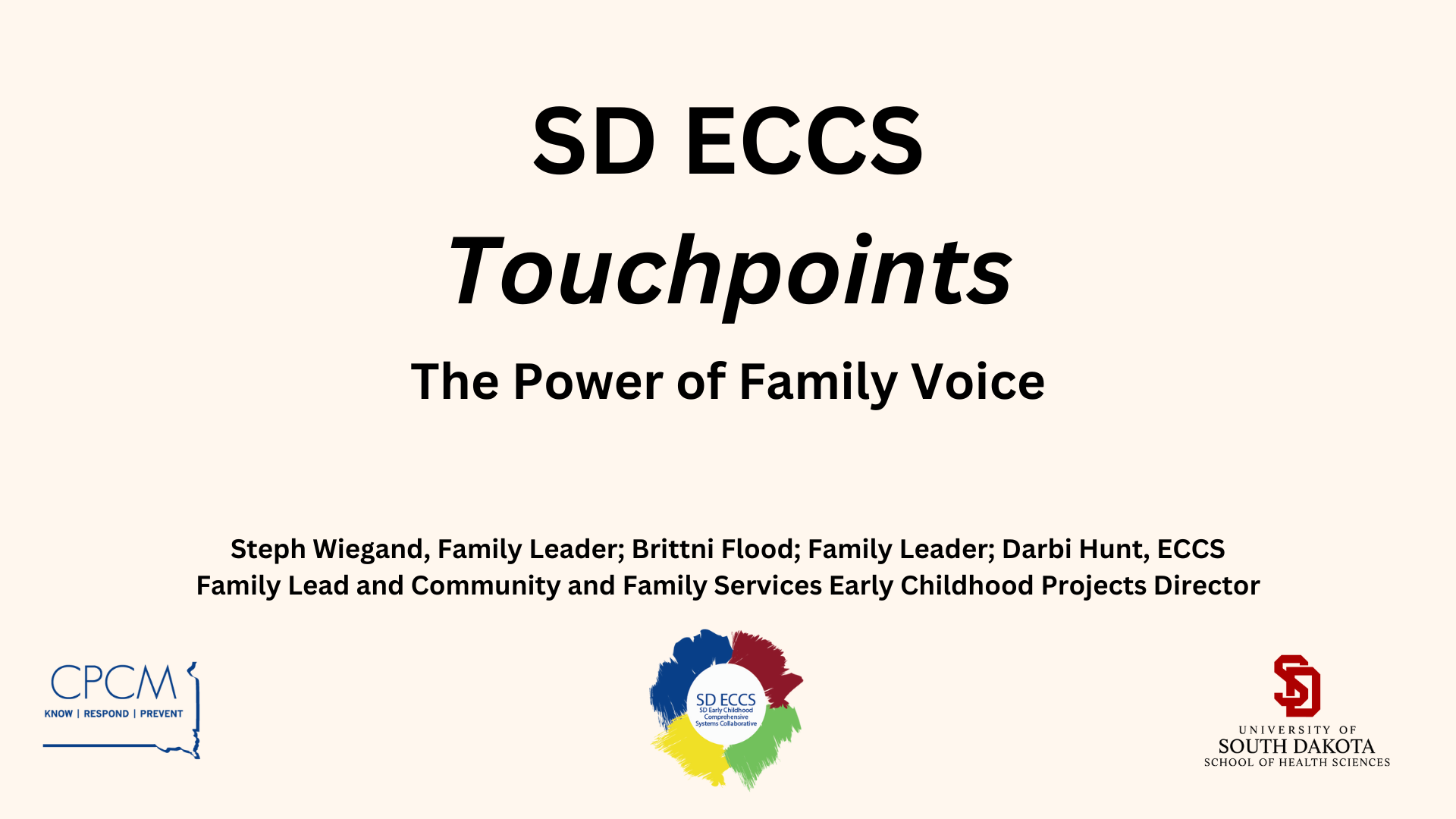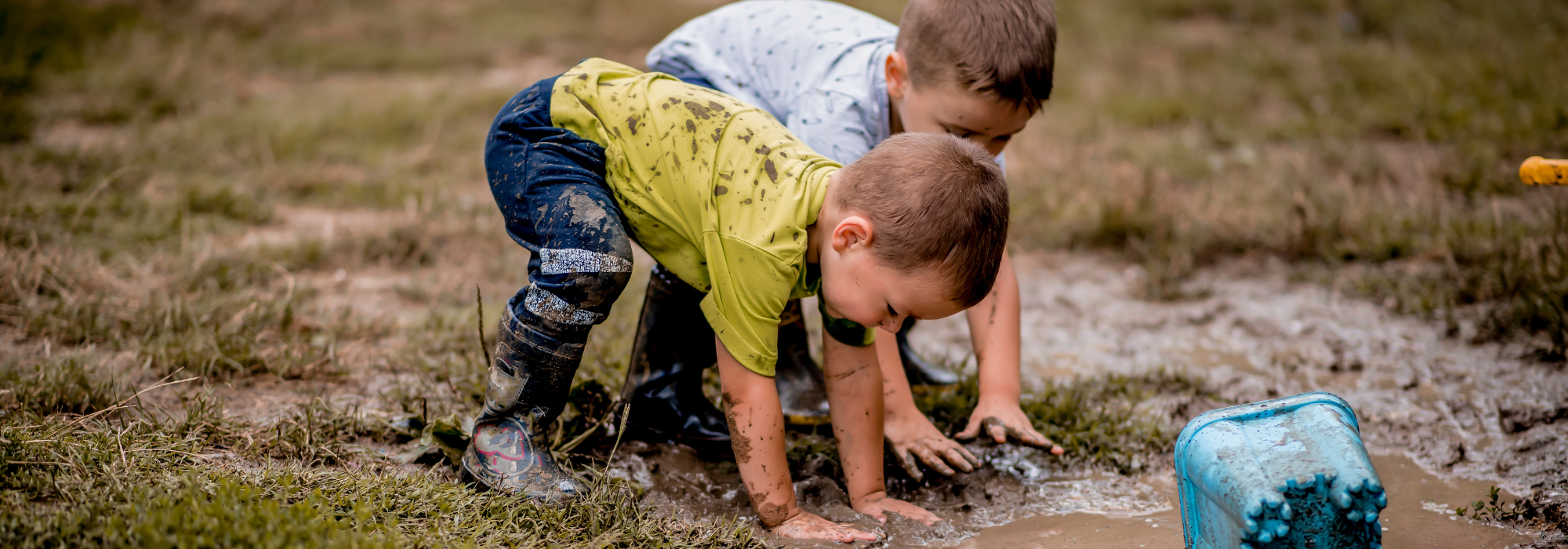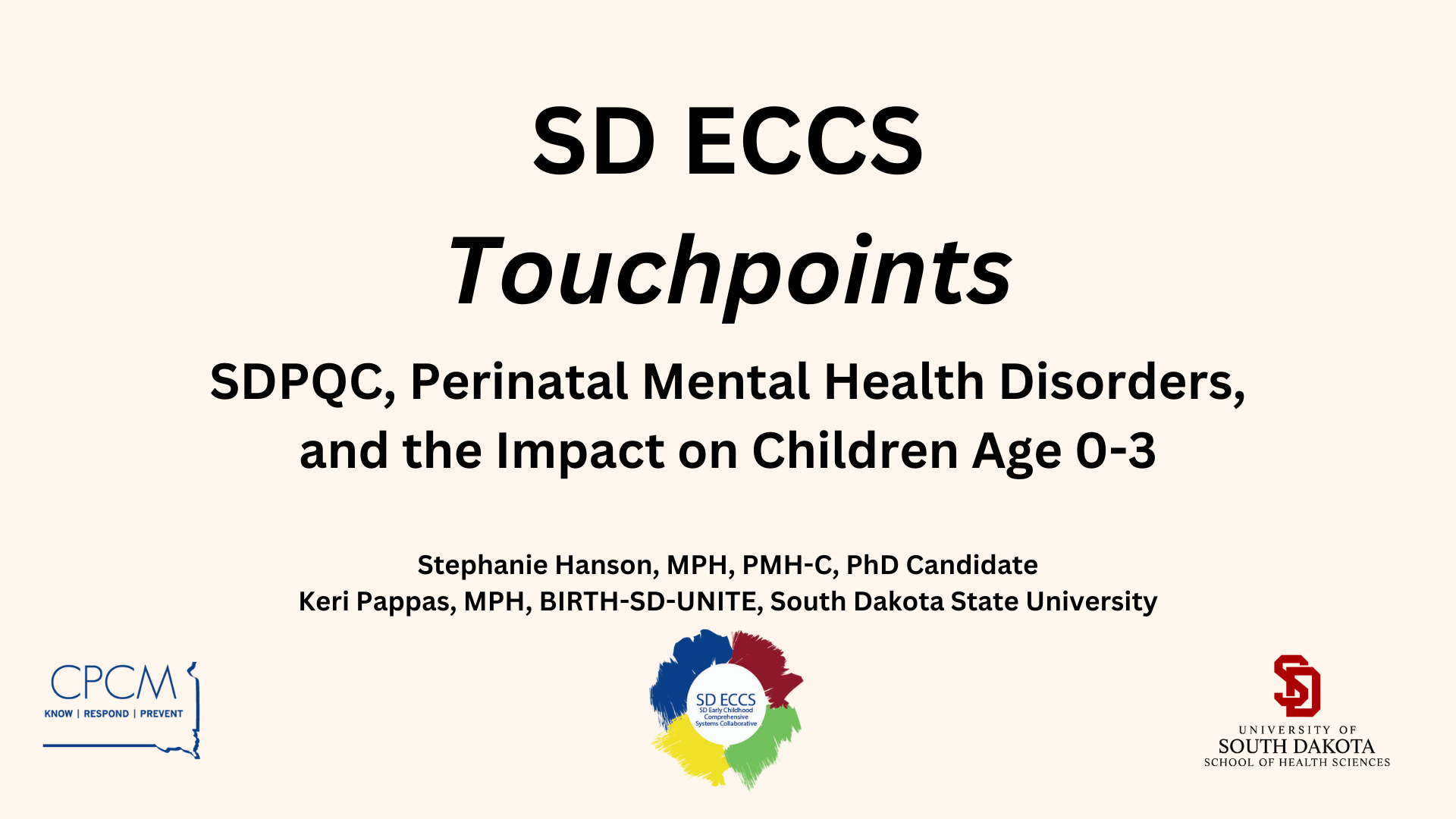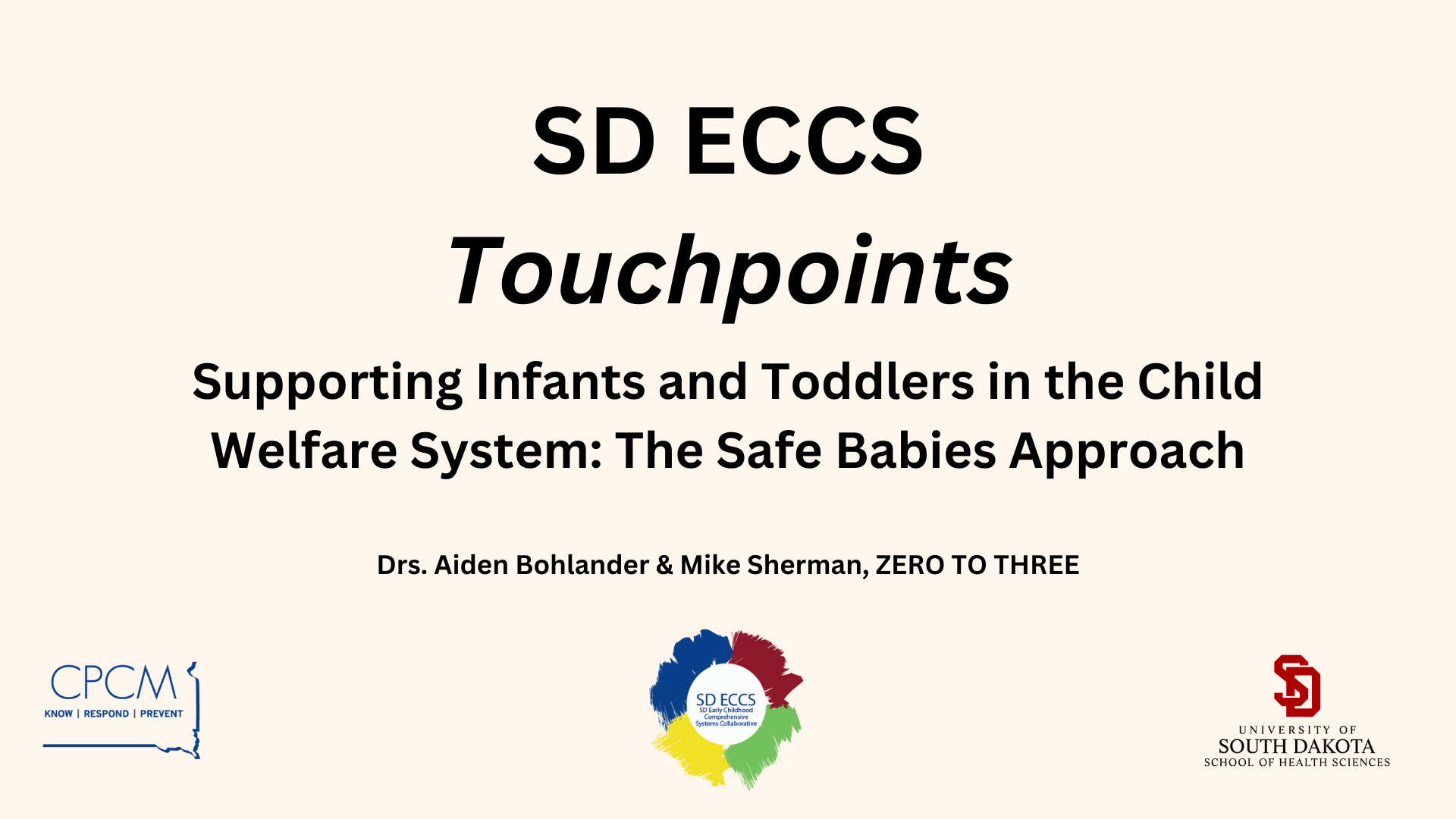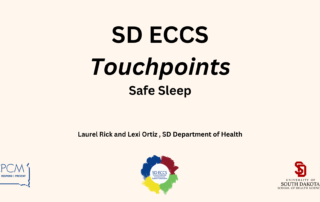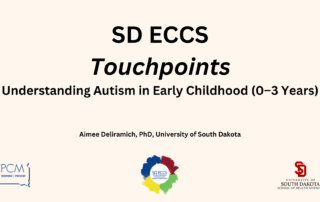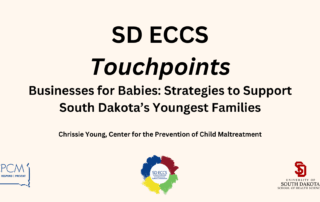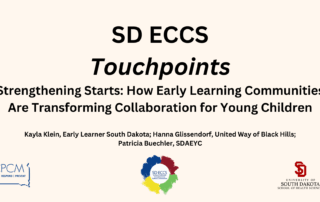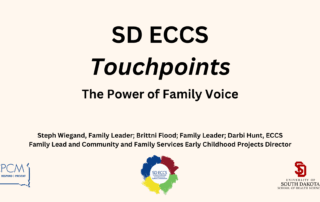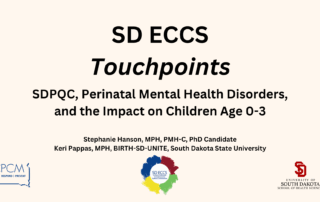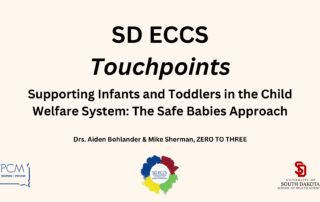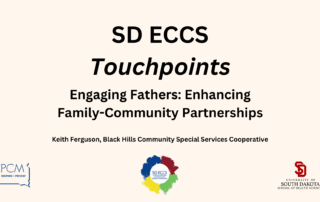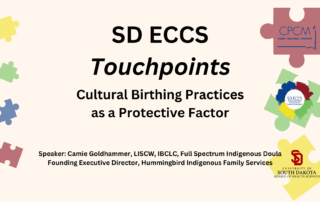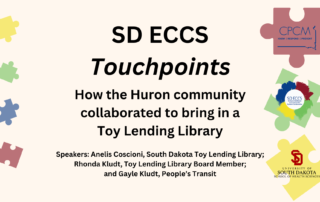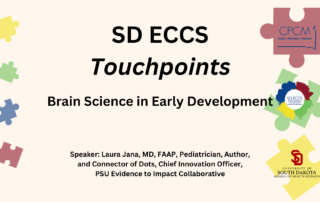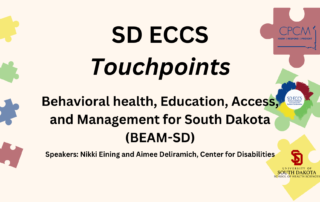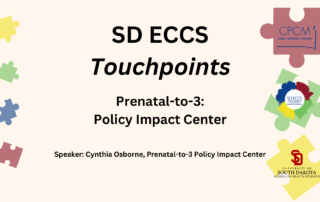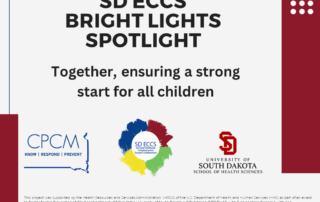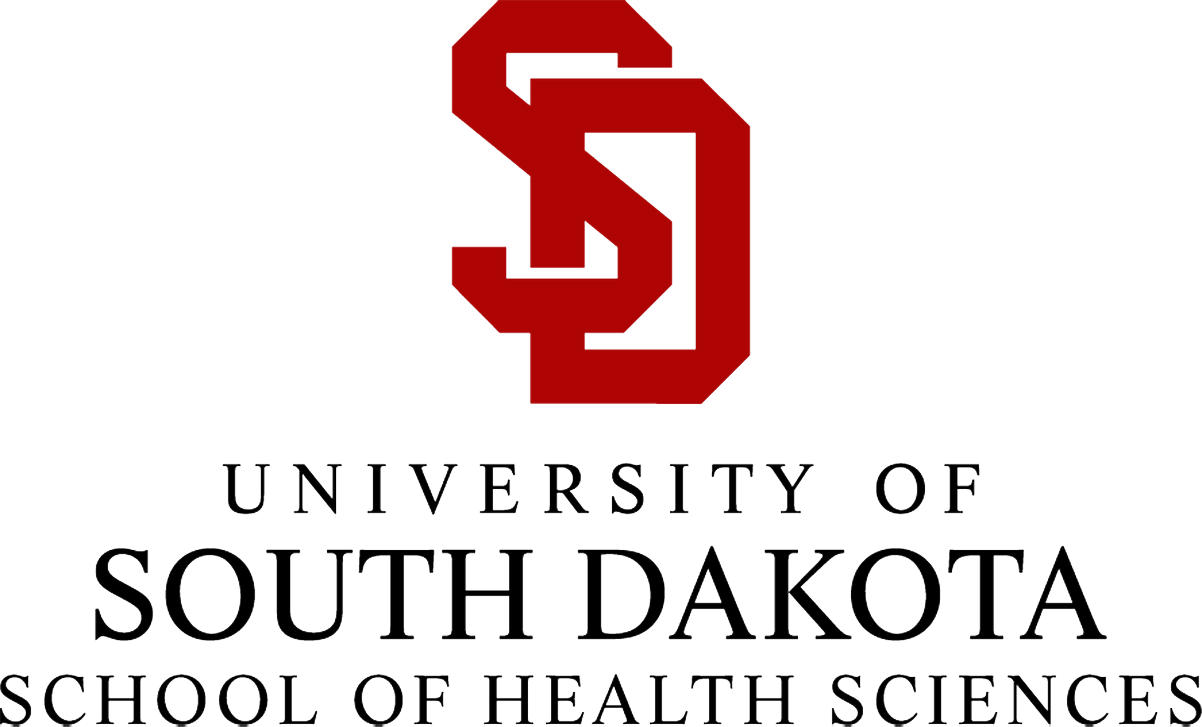CPCM is one of 20 Awardees nationwide of the Federal Health Resources and Services Administration (HRSA) Early Childhood Comprehensive Systems (ECCS) grant. HRSA’s ECCS grant program aims to build integrated maternal and early childhood systems of care that are fair, sustainable, comprehensive, and inclusive of the health system as a key partner.
Our Vision
All South Dakota children are ensured a strong start through access to a range of parenting, education, health, and family support services within a coordinated delivery system.
Our Mission
The South Dakota Early Childhood Comprehensive System Collaborative (SD-ECCS) strives to move from individual to shared responsibility for ensuring a strong start for all South Dakota children.
The following five goals and objectives to strengthen the Early Childhood Comprehensive System of care in South Dakota were established by the ECCS Team and Advisory Board. South Dakota agencies and organizations working to ensure a stronger start for all children are encouraged to consider how the following five ECCS goals and strategic objectives might be incorporated into current or evolving plans and how they are being, or will be, implemented.
If your organization is working collaboratively to ensure a strong start for children, share your work with SD ECCS.
Goal 1: Enhance alignment and collaboration between MCH and other early childhood systems of care.
Objectives:
- Increase the number of family and professional leaders engaged in state-level maternal and early childhood initiatives.
- Support efforts to align and share data to inform joint decision-making regarding the health and welfare of South Dakota children and families.
- Leverage the capacity of those working directly with families (such as child care providers, community health workers and home visitors) to increase reach and support to families for early childhood health, development, and well-being.
- Leverage and strengthen existing collaborative efforts to efficiently identify and address the needs of families with young children.
Goal 2: Advance a common vision for early developmental health and family well-being, and strengthen shared competencies for innovative and efficient service delivery.
Objectives:
- Establish baseline knowledge and competencies among professionals working directly with families and young children.
- Establish or leverage partnerships for shared training and professional development across health, education, social supports, and other systems working with families and young children.
- Increase public awareness of the importance of comprehensive, coordinated, and accessible care in early childhood, beginning prenatally.
Goal 3: Strengthen coordination of intake, screening, referral, and navigation across family and early childhood systems of care.
Objectives:
- Develop processes and infrastructure to reduce the administrative burden for families to access resources and access systems of care.
- Leverage existing resource and referral agencies to better connect families to programs and services.
- Improve coordination of referrals across systems.
Goal 4: Increase capacity for meaningful engagement and partnerships with parents.
Objectives:
- Connect and empower parents and families.
- Provide opportunities for parents to engage meaningfully with state agencies and local or state decision makers around children’s health, development, learning and well-being.
- Normalize the stressful nature of parenting and encourage help-seeking and help-giving behaviors.
- Promote and assist with efforts to ensure that family engagement opportunities are family-centered and contribute to the development of respectful, trusting relationships between families and professionals.
Goal 5: Identify strategies that support the funding and sustainability of multi-generational services and systems for all children and families.
Objectives:
- Raise awareness of evidence-based policies and strategies for ensuring a strong start.
- Amplify a focus on two-generation approaches and encourage the coordination of funding to improve the health and well-being of the prenatal-to-3 (P-3) population.
- Provide information to decision makers upon request and as needed.
- Coordinate efforts among South Dakota organizations working to ensure a strong start for children, strengthen families, and align systems.
- Work with partners who are addressing workforce needs and implications.
A child’s brain undergoes rapid development during the first three years of life, making this period crucial for their overall growth. Each new brain connection formed during this time has been referred to as a “touchpoint,” which is why we named our informational webinar series after this important milestone in a child’s development. Through these hour-long, interactive webinars, our goal is to help you create your own touchpoints across South Dakota, contributing to the healthy development of all the state’s children.
Upcoming Sessions
Strengthening the Prenatal-to-Three System: Policy and Governance Strengths and Opportunities for all South Dakota Children
Connecting Families to Care: Maternal & Infant Health Resource Promotion and Mapping in South Dakota
Available Recordings
This project is supported by the Health Resources and Services Administration (HRSA) of the U.S. Department of Health and Human Services (HHS) as part of an award totaling $1366,231 with 0 percent financed with non-governmental sources. The contents are those of the author(s) and do not necessarily represent the official views of, nor an endorsement, by USD, HRSA, HHS, or the U.S. Government. For more information, please visit HRSA.gov.
